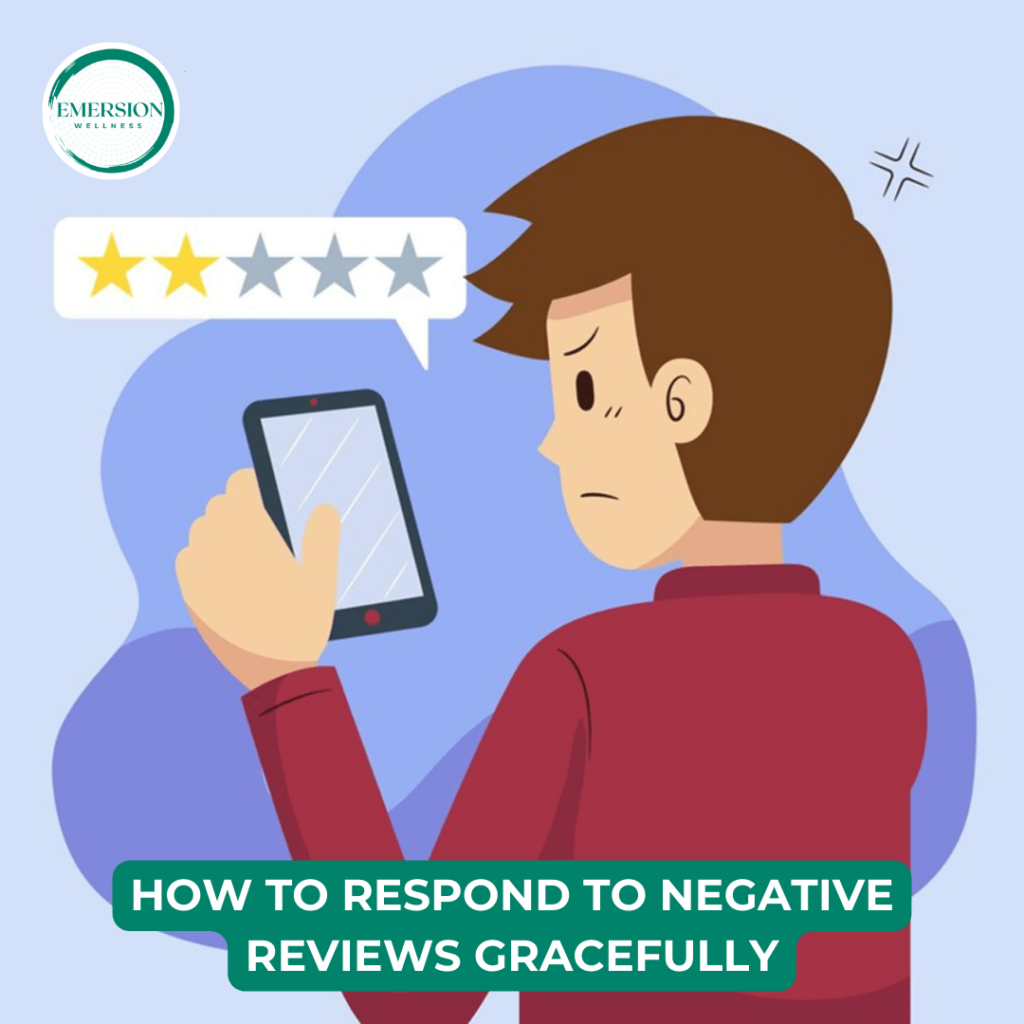A nasty hotel review stings, eliciting feelings of disappointment and defensiveness. Firing back at the critic or burying one's head ignoring the problem is tempting. Yet responding gracefully and constructively to negative feedback presents a pivotal chance to reconnect with disgruntled guests and restore faith in your property.
This article will give hoteliers a strategic framework for handling bad reviews with poise and care. One will learn tips for diffusing anger, addressing issues, recovering guests, and gaining insights to improve operations. When leveraged correctly, bad reviews can become catalysts for showcasing first-class service.
Table of Contents
Key Takeaways
- Address bad reviews promptly and politely, never defensively
- Listen closely to understand the guest's complete perspective
- Apologize sincerely and own responsibility for any failings
- Offer solutions, compensation, or incentives to reconcile
- Follow up to ensure issues are resolved completely
- Analyze reviews to identify areas for hotel improvement
Respond Promptly and Avoid Defensiveness about Bad Hotel Reviews
Speed matters when handling bad hotel reviews. Reply as soon as possible, within 24 hours if manageable. This shows the guest their feedback is valued, not ignored. Even if emotions are running high, remain professional in tone. Avoid defending or making excuses. Don't attribute issues to guests misconstruing situations or overreacting. This will only anger them further. The goal is de-escalating through understanding and solution-focus.
Thank Guests for Voicing Concerns to avoid bad Hotel Reviews
Start responses by thanking guests for taking the time to share feedback, as hard as that may be to say through gritted teeth. This sets an open, appreciative tenor and shows their input matters to improving experiences.
Apologize and Take Ownership
Offer a sincere, unqualified apology without caveats for any disappointment caused. Avoid "apologizing but..." Phrasing takes full ownership, like "You are right, we made a mistake..." This builds trust.
Listen Closely to Grasp the Full Story
Before responding further, read between the lines to fully grasp the guest's perspective. Was the issue purely functional, like a billing error? Or did it impact the entire stay's tone, like rude staff? Pinpoint root causes. Ask clarifying questions if needed to understand. Reflect on what you heard. This conveys sincere interest in making it suitable.
Present Solutions, Offer Compensation to Avoid Bad Hotel Reviews
With the story clear, present actionable solutions. Could you move the guest to a better room? Offer a complimentary future stay? Provide meal vouchers? Think creatively within reason. Compensation should aim to cover inconvenience, not just basics like refunding an erroneous charge. Go above and beyond to reconcile.

Follow Up and Strive for Positive Outcome
Don't end the conversation after one reply if issues persist. Follow up to confirm problems are fully resolved to the guest's satisfaction. This closes the loop properly. If possible, aim for the guest to leave not just placated but delighted by your committed recovery efforts. Bad reviews present redemption opportunities to create vocal brand advocates when handled well.
Learn From Feedback to Improve
Finally, analyze negative reviews to spot operational gaps and systemic issues. Could staff be better trained on service recovery? Do certain room types often have problems? Identify patterns, then implement targeted changes. This builds organizational wisdom. Also, privately praise staff who handle difficult situations well, setting standards.
Partner With Guest Response Experts
Gracefully resolving bad hotel reviews requires nuanced skill. Consider enlisting guest response partners with proven frameworks for effective issue resolution.
Emersion Wellness offers full-service guest satisfaction solutions refined through years of assisting leading hospitality brands. Their experts manage end-to-end complaint responses tailored to your property's needs and brand voice.
Hiring dedicated personnel solely focused on providing compassionate, timely responses to any negative feedback will transform how your hotel recovers from problems. Don't tackle it alone.
Conclusion
Negative feedback never feels good initially. But if embraced correctly, bad hotel reviews present golden opportunities to deepen guest loyalty by listening, apologizing sincerely, resolving issues thoroughly, and improving constantly. If handled deftly, setbacks become springboards to provide five-star service that keeps guests returning.
FAQs
Q: How soon should you respond to a wrong hotel review?
A: quickly addressing negative feedback is vital. If possible, respond within 24 hours of the review being posted. Promptly replying demonstrates to the guest that you are proactively on top of their concerns and prioritizing resolving the issues raised. Even a brief initial outreach acknowledging receipt of the review and letting them know a more detailed response is forthcoming goes a long way. Speed shows the guests they are heard.
Q: What tone should be used when responding to bad reviews?
A: Always maintain a polite, understanding response tone, never becoming defensive or argumentative. Thank the guest for taking the time to provide their feedback. Sincerely apologize for any part the hotel played in their negative experience. Take complete ownership of shortcomings rather than making excuses. The goal should be diffusing frustration by conveying compassion and a sincere willingness to make things right. These constructive tones lay the groundwork for redemption.
Q: How much compensation is appropriate when addressing a bad review?
A: Any compensation offered to the guest should exceed just the basics, like refunding an erroneous charge. It should also include something extra to cover the inconvenience and disappointment the experience caused. Examples could be a voucher for a future free night's stay, complimentary meals at the hotel restaurant, discounts on amenities, room upgrades, etc. Go above and beyond to reconcile.
Q: Why is listening closely important when responding to negative reviews?
A: Don't just look at the surface facts. Read between the lines to fully understand the context from the guest's perspective. What was the emotional impact beyond just functional issues? Pinpoint root causes by asking clarifying questions if needed. Reflect on what you heard to show the guest their experience and feelings thoroughly listened to and understood. This lays the groundwork for resolving the problem in a way that addresses emotional impacts.
Q: How can hotels learn from negative feedback?
A: Besides addressing the individual situation, analyze patterns across negative reviews. Are specific systemic weaknesses coming up repeatedly, like poor cleanliness or long waits? These offer opportunities to implement targeted hotel improvements. Shore up training on service recovery techniques. Upgrade facilities and amenities that commonly generate complaints. Compensate revenue losses due to bad reviews by partnering with revenue management consultants like Emersion Wellness to maximize other opportunities.
Q: Should you apologize when responding to a wrong hotel review?
A: Yes, it is vital to include a sincere, unqualified apology without caveats for any part the property played in disappointing the guest. Even if other factors like unrealistic expectations were at play, take ownership of shortcomings and apologize for anything you could have done better. This diffuses frustration and shows accountability rather than blaming the guest.
Q: How should hotels follow up after responding to a bad review?
A: Don't end communication after just a single back-and-forth. Follow up again to confirm issues have been fully resolved to the guest's satisfaction. If they indicate lingering problems, keep working to make it right. Follow-through is key. Aim to have the guest leave soothed and delighted by your service recovery efforts. This earns enduring loyalty.
Q: What emotional mindset should guide responding to reviews?
A: It's natural to feel defensive or discouraged by negative feedback. But try to emotionally reframe it as a valuable opportunity to improve and show guests your commitment to their happiness. Focus solely on profoundly understanding their experience, then making it right through compassion and solution-focused thinking. Guest retention starts with a mindset shift.
Q: How can responding to bad reviews build loyalty?
A: If handled deftly with care, bad reviews become chances to wow guests by the lengths you'll go to resolve issues and redeem their experience. This earns immense goodwill and trust. Guests who see you swiftly address their concerns become vocal brand advocates and repeat customers.
Q: What external support can help hotels manage negative reviews?
A: Given the nuanced expertise required, partnering with guest response services like Emersion Wellness is recommended. Their specialists handle complaint resolution end-to-end in your brand voice, following proven frameworks refined across the industry. This lifts the burden on your staff.
Contact us for more information.
Also See: How to Market a Spa Based in Hotels?

I'm Nathan Baws, a nutrition nerd, exercise and weight loss expert, and an unwavering advocate for good health. As the founder of Emersion Wellness, I'm passionate about crafting Seamless Weight Loss Programs to supercharge hotel revenue and transform lives. We've pioneered the World's First Plug & Play Weight Loss Programs for top hotels and resorts, sparking a wellness revolution. Beyond my professional journey, you'll often find me hiking, swimming, and riding the waves, embracing every moment in nature. Join me on this exhilarating journey towards diet, health and wellness.

